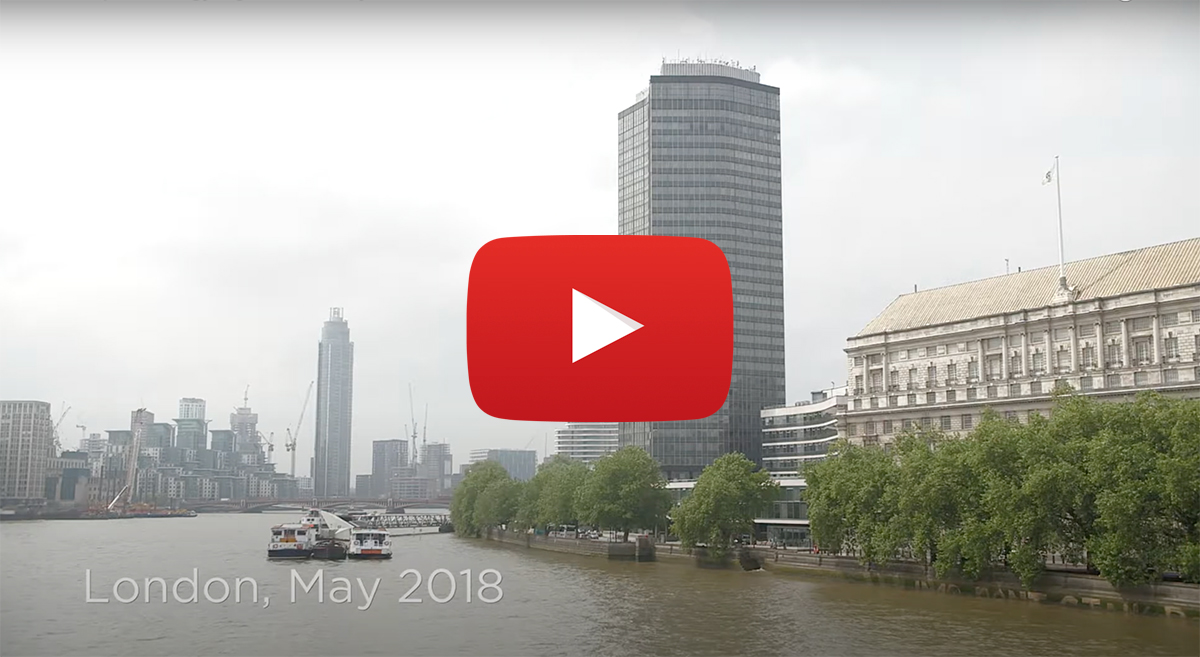In late 2015, I had just been made Head of Front-end development at Tangent Snowball - a top 40 agency in central London. They were a good size, had some great clients, and it was a really big deal to me. I can’t say that it came at the best time in the company’s life if I’m being honest - a few people that I had worked with ever since I’d been there had recently left. Despite that though, it still felt like a great opportunity for that point in my career.
One of those people that had left was Pete Miller. He’d been my boss, and he seemed super excited about where he was off to - he was going to help start an energy supplier(?!). It felt like a bit of an odd move, but he told me that David Winterbottom was going to be there too which made it sound very cool. Anyway I left them to it and focused on my new role. A couple of months passed and then I saw this tweet:
Front-end dev looking to join an innovative startup with big ambitions? Email me: Peter dot miller at octoenergy dot com #html #js #css
— Pete Miller (@pete_miller) October 22, 2015
The main reason that this was interesting is that Pete never tweets…ever. Given who was there I was pretty interested to hear what the deal was, and so I reached out. He let me know that I’d be meeting the founder: Greg Jackson. I’d heard of Greg as he’d started C360, a company that Tangent purchased, but I’d never met him in person before.
In the end it took Greg 15 minutes to convince me to leave my job.
Incidentally, the Costa that we met at for those 15 minutes is now roughly 100 feet from our new office on Oxford Street. Time feels very circular. I’ve been reflecting on that conversation, and all of the craziness that has followed it, as I celebrated my first five years at Octopus Energy (and the first five years of its life).
I wanted to write something short to commemorate such a special milestone, but not a full-on timeline or biography. It’s fair to say that all of the big moments have been very well documented. So instead, here are a few of my favourite moments, and a few bits of history for those interested (including myself, so I don’t have to dig them out years from now). Let’s go.
Quick note: these accounts are entirely subjective and just my opinion….naturally.
A few random bits of history
The first mention of us online
(although the handle changed):
#FF Welcome new companies! @ESBGroup @PinkScallop @PropertyFitLtd @octoenergy @FORMCLINIC
— TTNC (@ttnc) October 9, 2015
Beta testing before we joined the market
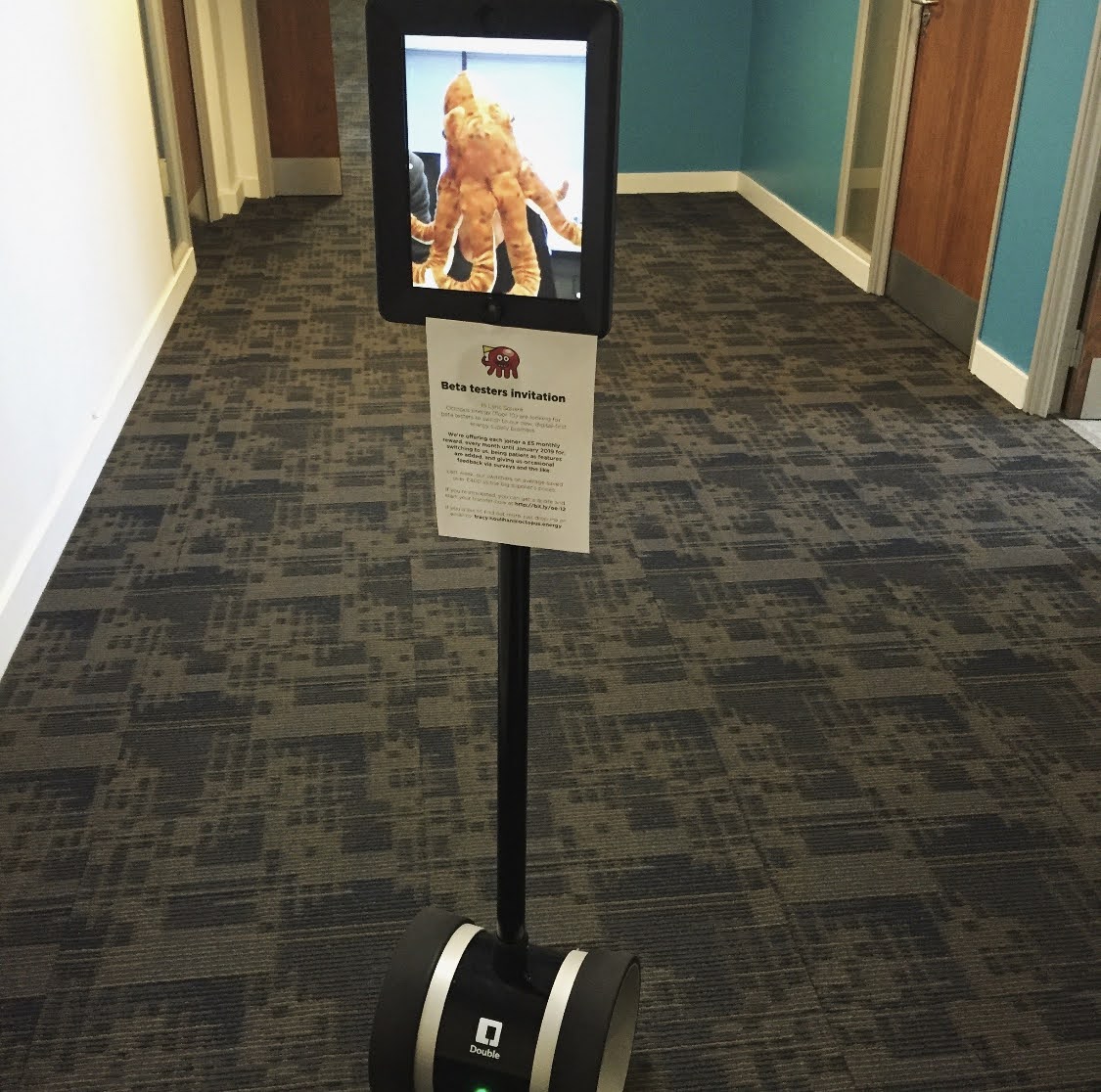
Matt Davies and I drove this contraption (called a Double) around the other offices on our floor to encourage people to come and join Octopus. We only had a handful of customers and had to have a few hundred on supply with us before we were allowed to fully join the market and start providing energy across the country (this is known as “controlled market entry”). This particular tactic was perhaps more frightening than encouraging, but we did get a few people signed up this way…
The first Octopus away day
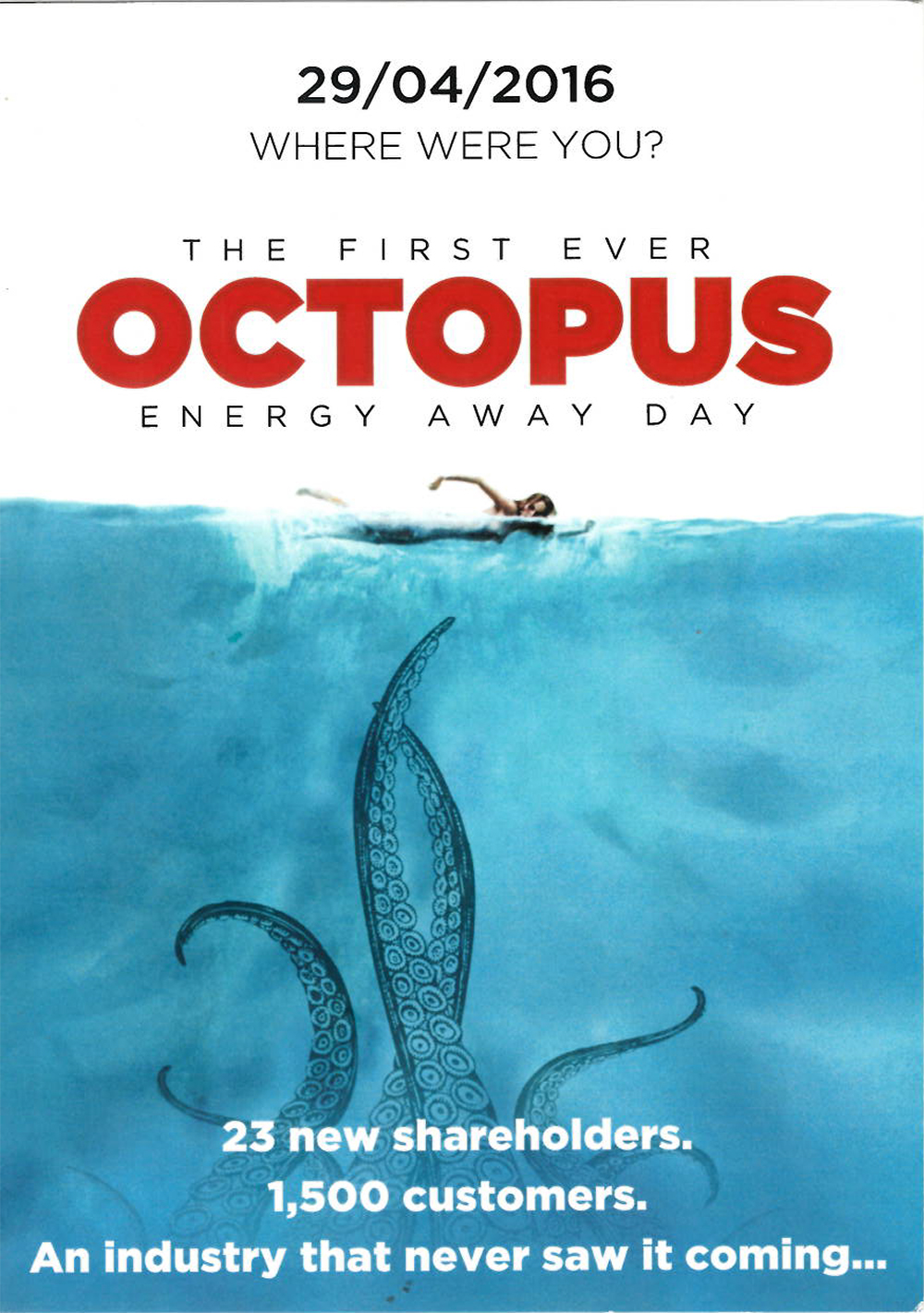
I love this flyer so much. The fact that it sounded so over-the-top reading it just as we’d entered the market and how, on reflection, it was probably still an understatement even then. Less than thirty of us, 1,500 customers. Bonkers.
We were based in Hammersmith at this point, before we found our more permanent London home in Soho, but an awful lot of fun was had in that first office (and those surrounding pubs). Celebrating 400 customers, entering the market, and getting our first TV advert out into the world all felt like incredible milestones. It felt like Hammersmith was where we forged the initial “energy” of Octopus, and you’d still feel that same energy if you entered any Octopus office, which I love.
Reaching 10,000 customers
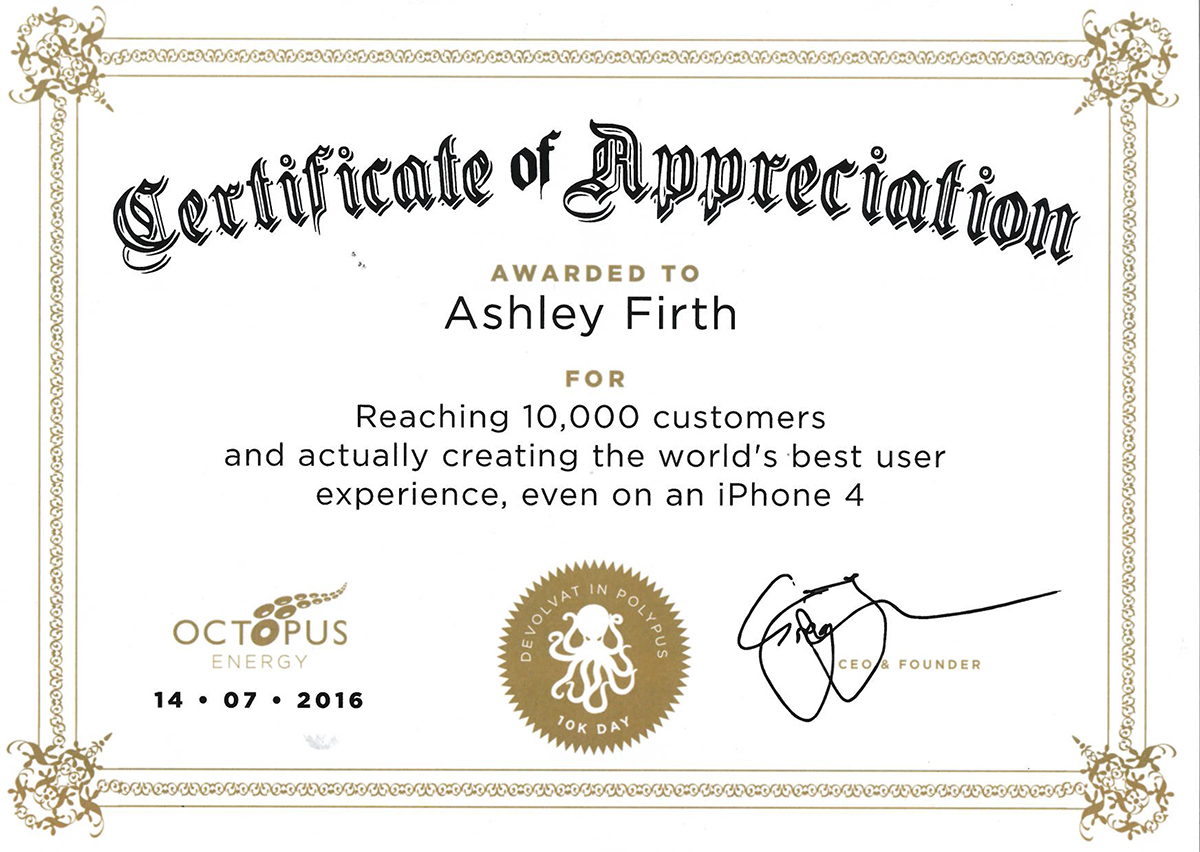
This is a certificate I received at our 10,000 customer party (crazy to think that was only just over four years ago). Everybody got one, and I’m most thankful for the fact that we don’t need to work as much on the iPhone 4 these days…
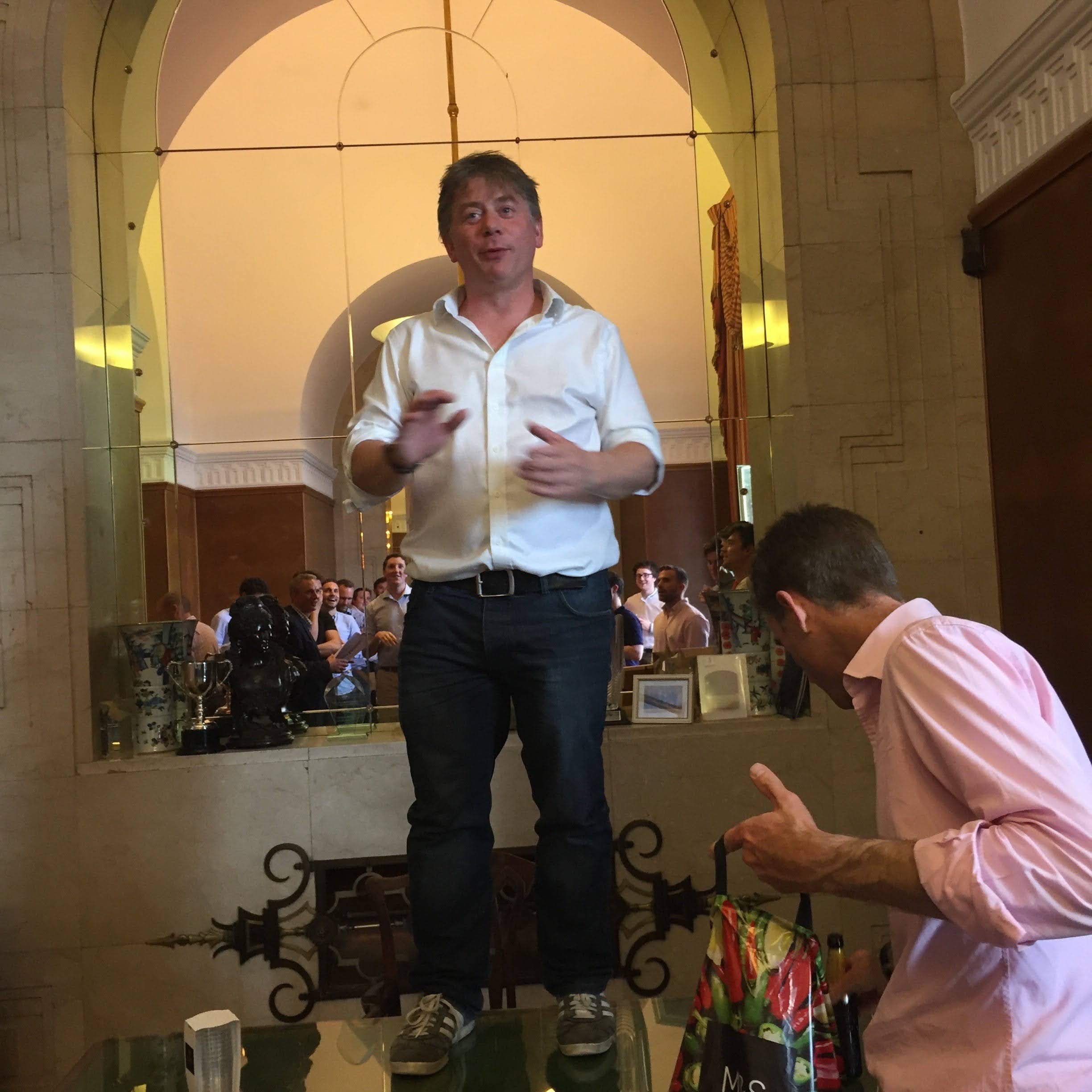
This is Greg giving one of his many iconic speeches before handing out said certificates. He made this one from atop the Mayor of Hammersmith’s desk for maximum effect. If this photo reaching the internet gets Greg in trouble, I’m really sorry! 😅
The start of slack
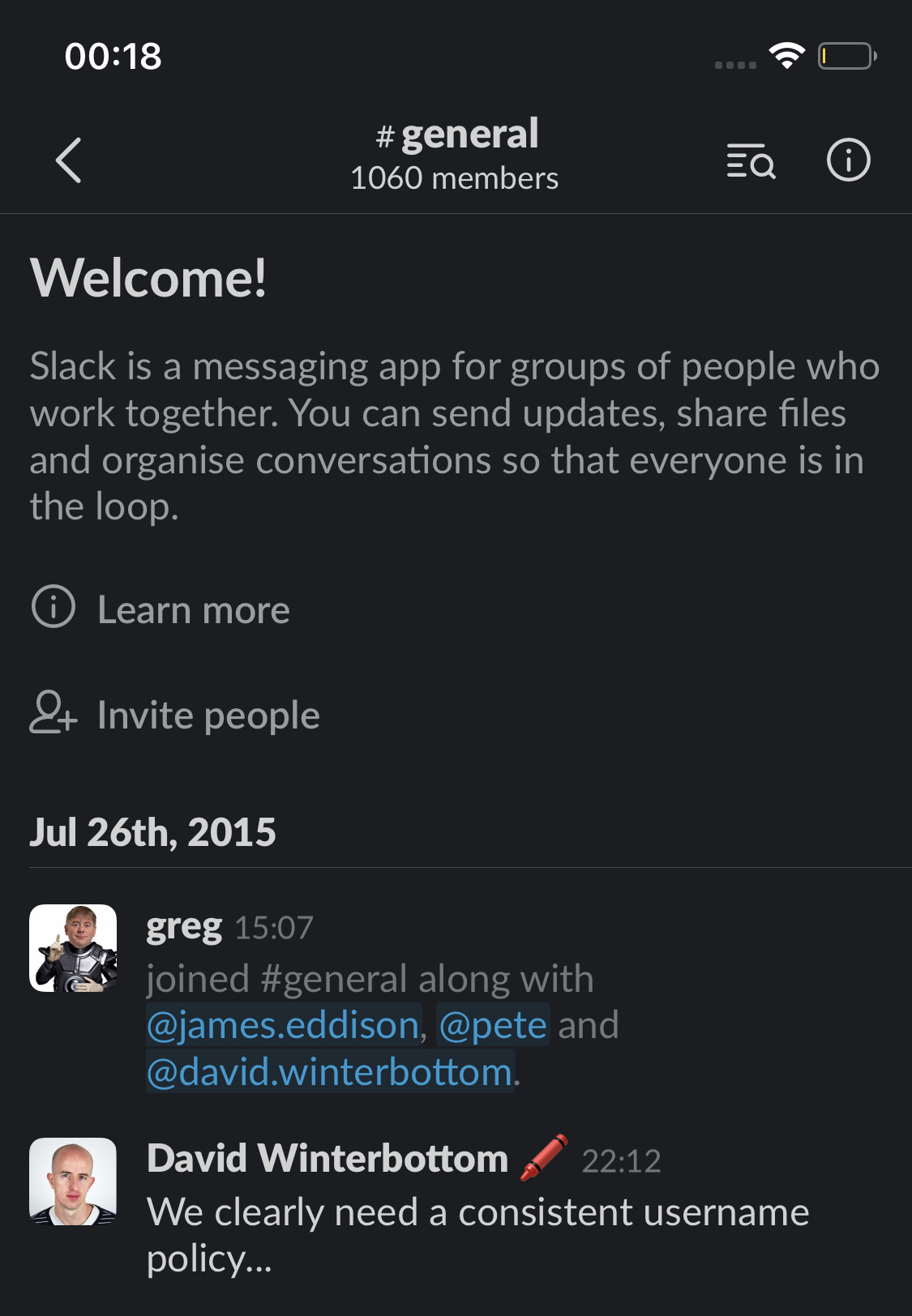
This is the first message ever posted on our general channel. To this day, we still don’t have a consistent naming convention (much to David’s distaste).
A little while later, I arrived! Here’s me joining general, and being welcomed by a lovely group of people who are all still here bar one:
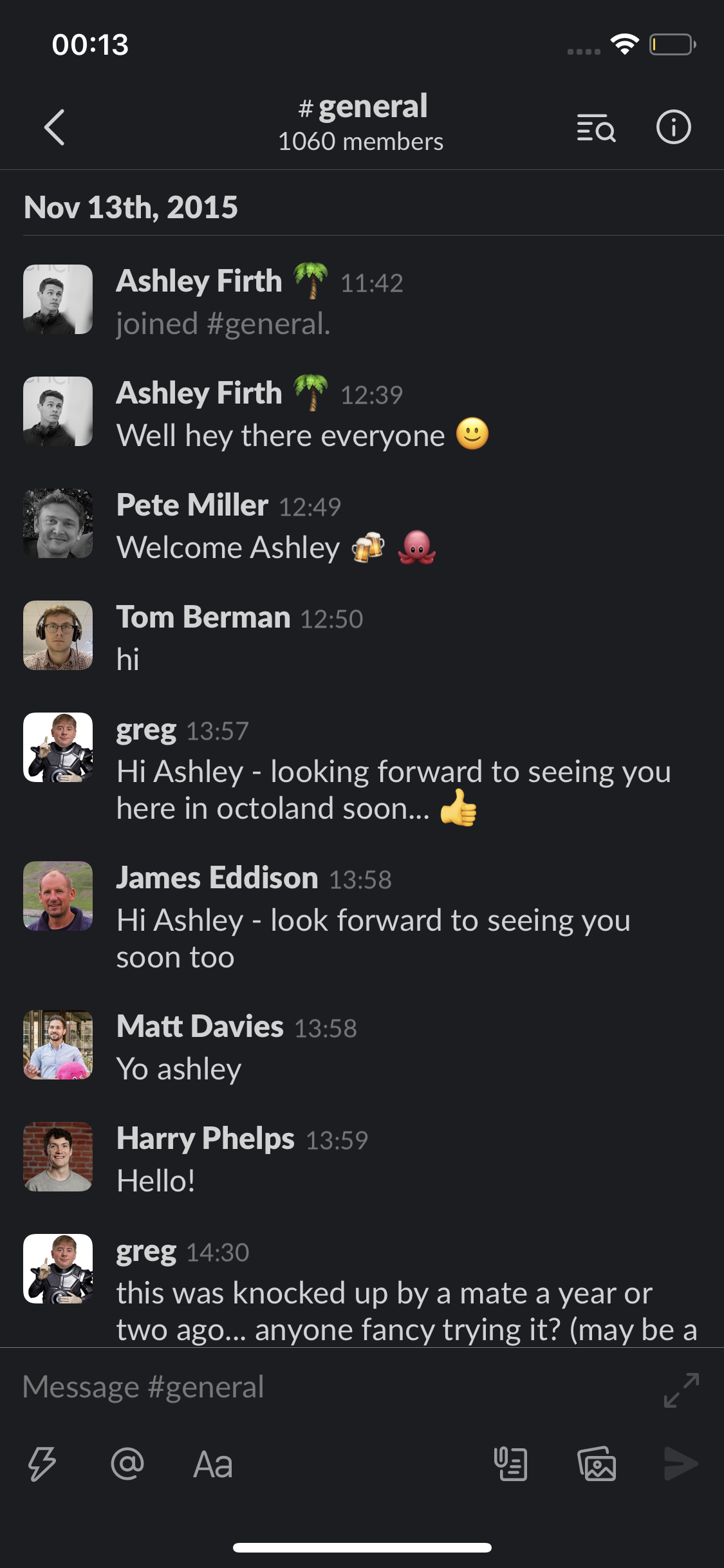
This is the first thing worth mentioning about Octopus: we really don’t have that many people leave us. After working at an agency, where turnover was measured and treated as an inevitability, it’s felt like a privilege to work alongside, grow with, and learn from a core group of talented and likeminded people.
Of course it’s easy to achieve when you’re quite small and everyone is close-knit, but it’s stayed that way as we’ve grown to over a thousand people, and I think there’s a certain assuredness that comes from knowing that those working around you care about what you’re working towards just as much as you.
It’s the biggest thing I wanted to foster when I eventually started growing a team of my own, and I’m proud to say it’s been a success so far - we’ve only ever had one leaver in Front-end and that was early on in their time with us because they missed working at an agency. There was technically one more, but they left for a couple of months, wanted to come right back, and hasn’t left since so I’m not counting it 😉.
It can’t be understated. It really can’t. I know there are roughly one billion articles online spouting about how important having the right people in your team/company/cult is, but it really is the first, second, and third most important thing. It’s the reason I stayed so long at my last job, the reason why I’ve been here longer than anywhere else in my career, and the reason I decided to join in the first place. Aside from Greg’s insanely compelling pitch about what Octopus could be, the fact that they had smart people aboard that I looked up to sealed it.
The 8 promises of Octopus
One of the first things that I remember Pete creating in 2015 was the “manifesto of Octopus” - a small booklet of the rules that we were always going to live by as a company. This is what is looked like:
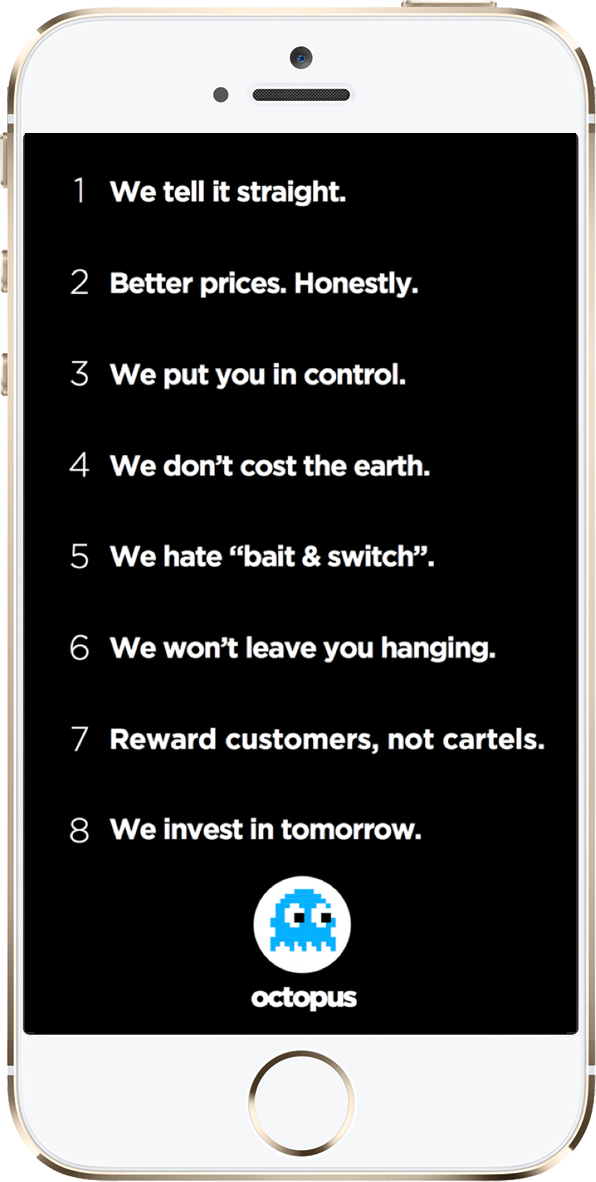
What I love so much about these is that they’re just as accurate today - a good chunk of them are covered in the mission statement we often share:
We use technology to bring lower and more transparent pricing, better service and more sustainable energy to customers.
They also weren’t promises that started small and then needed to scale up accordingly - we were genuinely always thinking on a global scale, because the problems we’re aiming to tackle are on the same scale. And there had to eight of them, naturally.
The price cap
Number 5 on the list of promises was “We hate bait & switch”. This is the practice of suppliers enticing customers in with a cheap deal (often through price comparison sites), and then rolling them on to their standard tariff when their deal ends - usually costing them hundreds of pounds more a year.
It’s never how we wanted to act as a business. We often use the tagline of “good value for the long-term and not the fixed term”, and it’s a mentality that we think everyone who sells energy should have - we may not always be the very cheapest, but we’re transparent and, most importantly, consistent.
Unfortunately it’s not something I can say about every supplier. This graph was created by our data team in 2016, showing the cheapest deal each supplier was offering (shown as the blue dot) and the difference between that and their standard variable tariff price (shown as the orange square). The important takeaway here was just how drastic some of those price shifts would be for customers when their initial deal ended and they hadn’t switched tariff. In some instances, it would be was much as double the price.
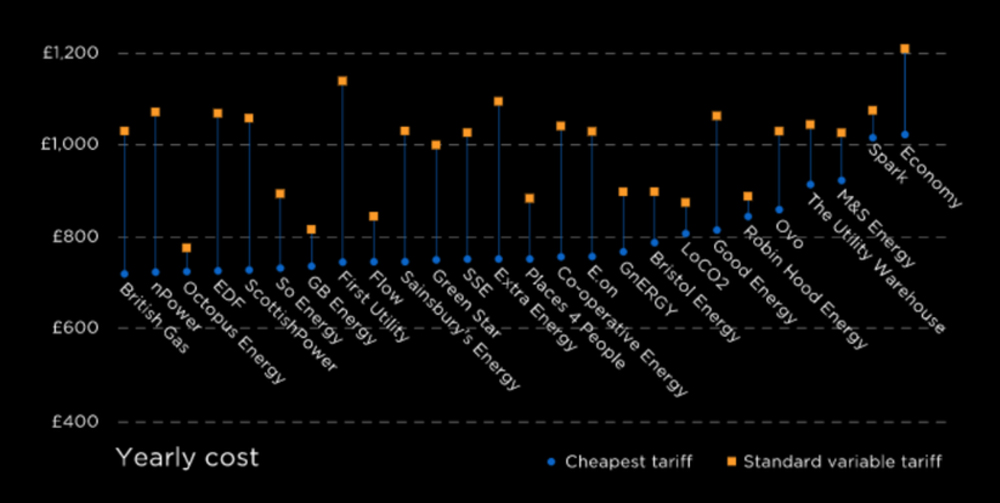
We wanted to curb this behaviour across the board, and make energy more affordable for everyone. The first step was highlighting that it was happening. Michael Robinson of BBC’s ‘Money Box’ featured it on his show, and “bait and switch” became known as “tease and squeeze”.
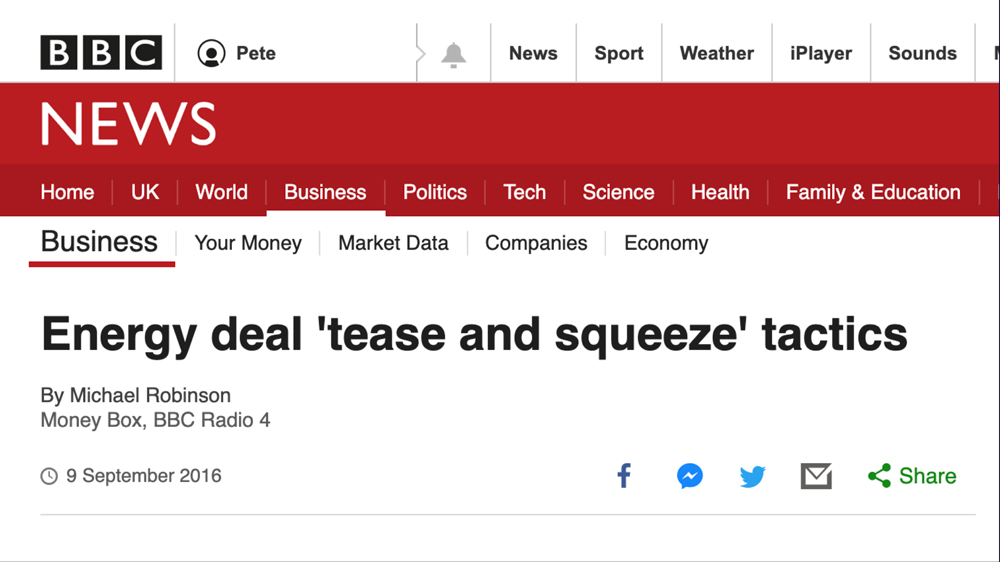
After this, largely down to the work of our incredible Director of External Affairs Clementine Cowton along with Greg and John Penrose MP, a ‘price cap’ was introduced as law across the industry:
The Bill to provide for an energy price cap has now received Royal Assent and has become law. pic.twitter.com/Wpfx6XsJnP
— UK Prime Minister (@10DowningStreet) July 19, 2018
It’s one of the things I’m most proud of and why I love being at Octopus so much: it’s a group of dedicated, like-minded people who are all smashing it in their respective areas. I had no part in this process at all, but I look at it fondly and think “that’s the company I work for”. When operations rightly win a hundred awards for outstanding service, we all celebrate. When we win tech company of the year for the platforms and experiences we build, we all celebrate. Hell, when Greg wins an award for being the best CEO to ever CEO, it sits in the lobby with all the others. We’re playing a team game.
What adds to my love of this is that the price cap didn’t actually directly impact our customers, because nobody was being charged over the price cap limit - this saved, in many cases, hundreds of pounds a year for millions of customers who weren’t with Octopus and may never be with us.
Tracker & Agile
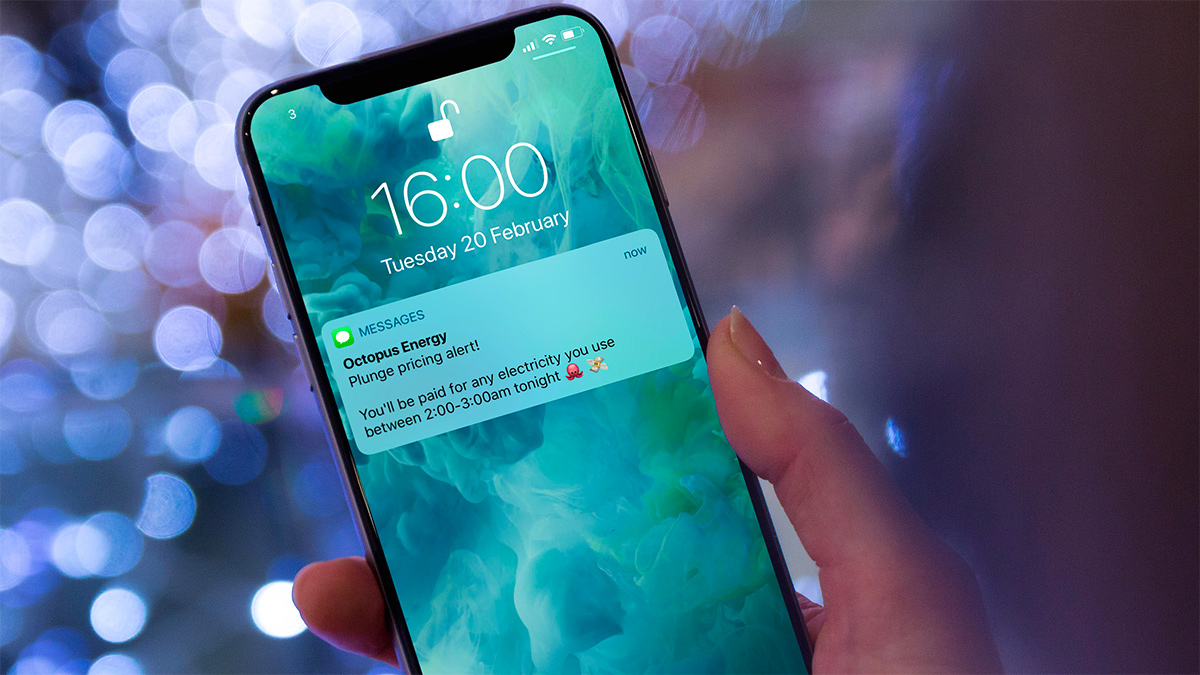
As much as I hated life in a digital agency, it’s fair to say it teaches you a fair bit about tight deadlines. This is particularly useful because, unfortunately, no company is immune to them - every now and then they pop up, even when we set our own deadlines.
Octopus Tracker & Agile Octopus are the names of our smart time-of-use tariffs. They’re able to change price daily and half-hourly respectively - both were a first for the energy industry when they were released. Tracker aims to be the most transparent tariff ever: changing price daily and showing you the exact breakdown of what and why you’re paying (what pays for distribution, generation, and even our margin on it). Agile’s aim was more behavioural: by offering different prices every half hour depending on the demand and supply levels of renewable energy, customers could get used to putting the washing on an hour later to save money, or set their devices to charge at times that are ‘greenest’ or ‘cheapest’.
I love them for a few reasons:
- 👨💻 I helped build them with some very smart people
- ⭐️ They highlight everything that’s great about Octopus tech
- 😅 They were made under very tight time constraints
We’ve always been a flexible company in the way we work: the where and when of each person has always been secondary to treating people like adults and knowing that they’re in control of what they’re doing. This really helps to foster a culture that avoids stress and pressure wherever possible.
However sometimes, for the sake of the business, exceptions need to be made. Planning has to give way to action and this was the case for both of these. When it happens, our plan is simple - get the right people in a room, and we’ve got a good chance. The default response isn’t “that’s too soon”. Such is the way that we work that, in fact, it’s actually exciting when opportunities like these come up: when it’s not the default, you’re happy to do it when it’s vital.
We now have tens of thousands of people on these smart tariffs, and they’re products that wouldn’t have existed without us being able to switch into that way of working when it’s been necessary. Because of all of the above, they’re amongst my favourite things to have built at Octopus. I genuinely think that when smart meters are more widely rolled out, these will become the default tariffs to be on as well - taking advantage of smarter homes and people helping to balance the grid rather than other drastic measures.
![]()
For Agile, we also exposed the API we created and had a hack day where people from a range of different companies played with it to see what they could come up with. It was one of my favourite days ever at Octopus, and something I hope we do again soon.
Small side note: for both projects I played “riders on the storm” by The Doors on repeat for most of the time. The first time it was by accident and ended up being quite funny. The second time was more for tradition than anything else, but it did drive us a little mad…
Writing a book
It’d be plain wrong if I didn’t mention this in here, because it probably wouldn’t have happened if I hadn’t worked at Octopus.
If you speak to most people that work here, they’d probably agree that you end up having to grow as a human as quickly as the company has grown. You get given a lot of responsibility early on in your career, which brings with it a lot of opportunities. You arrive at this fast-moving company, and there’s a lot going on and a lot to do, so you have to be comfy that some of the time someone isn’t going to tell you what to do. Instead, you simply take something and run with it. That’s either liberating or terrifying. It can also be both, which is fine.
This is what happened with accessibility when I first started at Octopus. It went something like this:
- 😬 I told Greg I needed a couple of weeks before we even had a quote journey live to work on baking in accessibility from the start. He was concerned (understandably) but ultimately trusted me to run with it
- ✍️ I started blogging about it, and then started writing for tech magazines to spread awareness
- 🎙 I started to give talks about customer experience at Octopus, and that gave me a platform to talk about the importance of accessibility
- 🤔 Those talks led me to speak at the Festival of Marketing, and that was the point that I realised I wanted to write a book that brought this topic to people who weren’t developers in a format they could actually engage with
- 🙏 When I said I wanted to write a book, Greg and Rebecca (our Director of Marketing) worked with me to find a solution that worked best. The result was Jackson Howarth who joined as a Research Assistant (and in true Octopus style never left and became one of our writers!)
- 🔥 For the year that followed, I juggled working at Octopus during the day and writing a book in my evenings and weekends. I’m not glorifying that but it is what happened. I’m very lucky to have an understanding partner
- 🗣 We now use the book as a talking point and platform for discussion when we talk at events or people visit us at the office, in order to raise awareness about inclusion and web accessibility
- 🥰 Greg even gave a load of copies away in a giveaway on Twitter!
Writing a book had always been a dream of mine, and I did it last year because, four years beforehand, I read about accessibility, knew it mattered to me (and would matter to the company) and ran with it. That’s it. That’s the secret. That’s how I went from this:
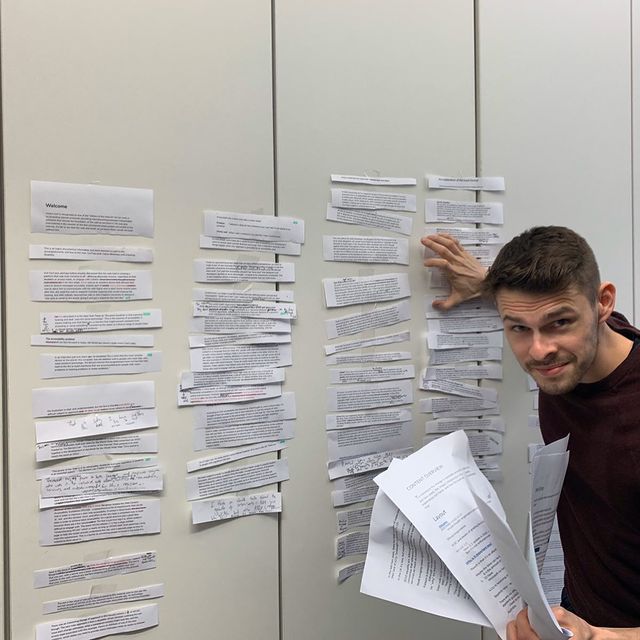
To this:
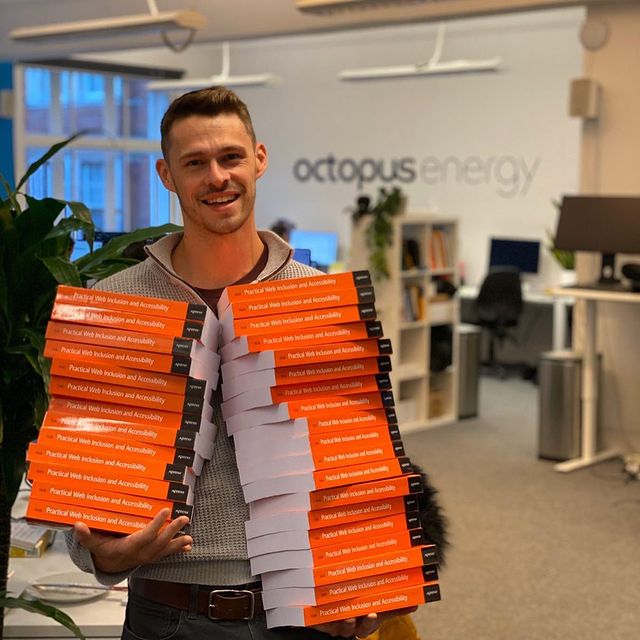
All thanks to how Octopus Energy it set up.
And here we are…
I think the nicest thing I can write about Octopus Energy in 2020 is that it feels like Octopus Energy in 2015. Even at this size, with this many customers, it still feels the same. Anyone in the company right now would have fit in seamlessly with the first few of us there. We’ve won awards for being the way we are, consistently, for half a decade. Concerns about how, or if, we’d scale, have been answered in full.
Becoming a “Unicorn” is a cool accolade, and a great checkpoint to reflect on, but it’s far from the end goal for us. Whatever this thing becomes, the aim is to always be ‘Octopus’: Not magical, but very real. Not a story from history, but here and now. And not a name amongst a group of others, but something very, very different. Let’s see what the next five years holds in store…
